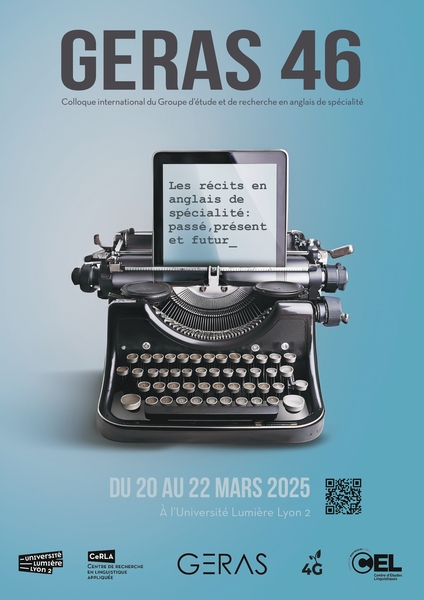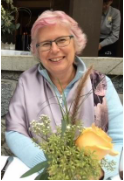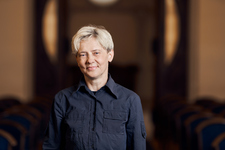KeynotesPlenary #1
Sheena is Professor of Applied Linguistics at Coventry University, UK. She joined Coventry University as Head of English and Languages in 2011 from the University of Birmingham, where she was Reader in Educational Linguistics and member of the MOSAIC Centre for Research on Multilingualism. Prior to that she was in CELTE, now the Centre for Applied Linguistics, at Warwick University. Sheena has a background in Functional Linguistics, English Language Teaching (Germany, Sudan, Ukraine), EFL, ESL and EAL Teacher Education and Applied Linguistics (Canada and UK), with experience in Malaysia, Botswana, Pakistan, and China. She enjoys teaching grammar, academic English and genre analysis, and has been involved in the development of national and international pre-university, undergraduate, postgraduate and workplace programmes. Her publications include teaching materials and internationally refereed articles in journals such as Applied Linguistics, TESOL Quarterly, Language and Education, Language Awareness, Language Teaching Research, English Language Teaching Journal, TESL Canada Journal, Journal of English for Academic Purposes and the International Journal of Bilingual Education and Bilingualism. As an applied linguist, she particularly values the synergies between teaching and research. By researching the English we use in education, we uncover the complexities of how language functions in changing and diverse social and educational contexts, and how we communicate on many different levels. This complexity is enriched when English is used in international settings by speakers of other languages.
The Narrative Recount Genre Family in the BAWE corpus Narrative Recounts belong to a relatively understudied genre family, compared to essays, critiques and case studies, but they are distinctive and in the BAWE corpus they were found at all levels of study (from undergraduate years 1-3 to taught Master’s) and across all disciplinary groups (Arts & Humanities, Social Sciences, Life Sciences, Physical Sciences). Their purpose is to demonstrate / develop awareness of motives and / or behaviour in individuals or organisations. They include examples such as accident reports, accounts of website searches, and urban ethnographies. They are basically fictional or factual recounts of events, with optional comments. The Narrative Recount genre family scores highly on the narrative dimension in a multidimensional analysis, and can be recognised through its many past tense verbs and third person grammatical features. What is perhaps more surprising, is that this genre family is also the least informational on the involved – informational dimension, with its relatively low type-token ratio alongside first person pronouns and private verbs/ mental processes. It is also the least elaborated on the situation-dependence dimension, with its relatively frequent use of time and place adverbials. Narrative Recounts occur both as stand-alone assignments and as part of larger assignments – for instance they can be added as a reflection on process to Case Studies, Essays, Explanations, Methodology Recounts, Problem Questions or Proposals. Narrative Recounts are therefore not typically narratives with a complicating action that is resolved, but they do often suggest a triumph over adversity. This paper will examine the two types of Narrative Recount genre found in the BAWE corpus (personal and impersonal) and will raise questions about their relevance for student development, for objective assessment and for creative criticality. The BAWE corpus is freely available to researchers and can be downloaded from the Oxford Text Archive through British Academic Written English Corpus (BAWE) | Coventry University.
Plenary #2
Jolanta Šinkūnienė is a professor of linguistics and a director of the Institute of English, Romance and Classical Studies at Vilnius University, Lithuania. Jolanta’s research interests focus on academic rhetoric, disciplinary cultures, research publication practices, evaluation of research, academic identity aspects and careers in research.
Hidden Narratives in Academia In research writing we expect convincing arguments and empirical evidence, rationality and novelty, replicability and multiple voices backing up the claims of the writer. It may seem thus that a personal story does not have its place in research writing context. However, hidden in the footnotes or special sections at the end of the article, lie small, succinct texts offering a vivid picture of the multifaceted and complex life in academia. From moral support to money granted, from data sharing to taking care of experimental birds, these hidden narratives layer after layer reveal epistemologies, traditions and cultures of different academic communities. In my study, I investigate patterns of narratives in research writing. Using the frameworks of genre analysis (Swales 1990, 2004) and stance and engagement (Hyland 2005) as well as a corpus based approach to discourse analysis, I focus on the rhetorical structure and identity elements in research article acknowledgments in various disciplines. The results of the study could be useful to both experienced and novice scholars who are interested in communication and engagement patterns in research world. The insights derived from the study could also be appealing to non-academic audiences curious about day-to-day realities of professional contexts. References: Hyland, K. (2005). Stance and engagement: A model of interaction in academic discourse. Discourse Studies, 7(2), 173-192. Swales, J.M. (1990). Genre analysis: English in academic and research settings. Cambridge: CUP. Swales, J.M. (2004). Research genres: Explorations and applications. Cambridge: CUP.
|









